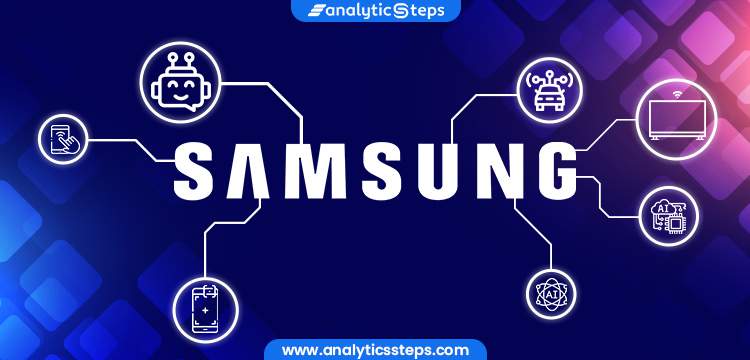Samsung Electronics is set to develop its own AI service for data retrieval, document translation, and word processing. The decision comes as the company has imposed a ban on its employees from using ChatGPT, citing concerns about the potential leakage of important technological information.
The company’s Device Solutions (DS) division, responsible for its semiconductor business, plans to launch a Large Language Model (LLM) that is expected to surpass the capabilities of GPT-3.5. By harnessing generative AI, Samsung aims to transform innovation into tangible solutions. The company intends to implement managed AI within Samsung-controlled organizations. Basic services are scheduled for launch in December of this year, followed by professional search services based on enterprise knowledge in February of next year.
These measures enable Samsung to optimize procurement and costs while gaining expertise in processes, design, and production. The technology will facilitate the generalization and translation of production and technology data, document creation, meeting transcription and summarization, market and company data analysis, program code generation and evaluation, and organization of customer feedback.
These new measures are a response to the growing demand for generative AI systems like ChatGPT. While such systems offer clear benefits, the use of third-party tools raises the risk of sensitive information leakage. Consequently, Samsung has restricted the use of ChatGPT within the company and is planning to introduce a separate version exclusively for employees.
According to The Korea Times, DS has limited the amount of text that can be uploaded to ChatGPT. This decision was prompted by instances of employees uploading business correspondence and internal source code to the system, which resulted in information leaks in March. In the Device Experience (DX) division, responsible for household appliances and smartphones, the use of third-party generative AI on company PCs has been completely prohibited since May. DX is also exploring its own solution for translation, document summarization, and software development support, although specific plans have yet to be announced.
Reports suggest that Samsung Electronics has imposed a complete ban on the use of ChatGPT and similar services on all company network-connected devices after employees allegedly leaked company information to ChatGPT.
Samsung Electronics is taking a proactive approach to address the rising demand for generative AI systems while mitigating the risk of sensitive information leakage. By developing its own AI service, the company aims to provide employees with powerful tools for data retrieval, document translation, and word processing, explicitly tailored to its organizational needs.
The decision to ban the use of ChatGPT within the company reflects Samsung’s commitment to safeguarding valuable technological information. With the ban, employees are discouraged from relying on third-party tools and are instead encouraged to utilize the forthcoming in-house AI service. By doing so, Samsung can maintain greater control over data security and protect its proprietary knowledge.
Samsung’s Device Solutions division, responsible for the semiconductor business, is spearheading the development of a new Large Language Model (LLM). This LLM is expected to surpass the capabilities of existing models like GPT-3.5, enabling Samsung to harness the full potential of generative AI for innovation and problem-solving. By leveraging this technology, Samsung seeks to streamline internal processes, enhance productivity, and foster a culture of data-driven decision-making.
Furthermore, the implementation of managed AI within Samsung-controlled organizations will revolutionize various aspects of the company’s operations. From translating production and technology data to analyzing market trends and customer feedback, the AI service will automate and streamline numerous tasks, freeing up valuable time and resources for employees to focus on higher-value activities.
While the Device Solutions division has already outlined its plans for launching basic and professional search services, other divisions within Samsung Electronics are also recognizing the benefits of developing their own AI solutions. The Device Experience division, responsible for household appliances and smartphones, is exploring the development of a proprietary system for translation, document summarization, and software development support. Although specific details have yet to be announced, these efforts highlight Samsung’s commitment to integrating AI technology across various business domains.
By adopting a proactive stance toward AI development and usage, Samsung Electronics is poised to drive innovation while prioritizing data security and intellectual property protection. By creating its own AI services tailored to the company’s specific needs, Samsung can leverage the power of generative AI to fuel productivity and gain a competitive edge in the industry.
Read More:





 Saudi Arabia and China Forge $5.6 Billion Partnership in EV Manufacturing
Saudi Arabia and China Forge $5.6 Billion Partnership in EV Manufacturing